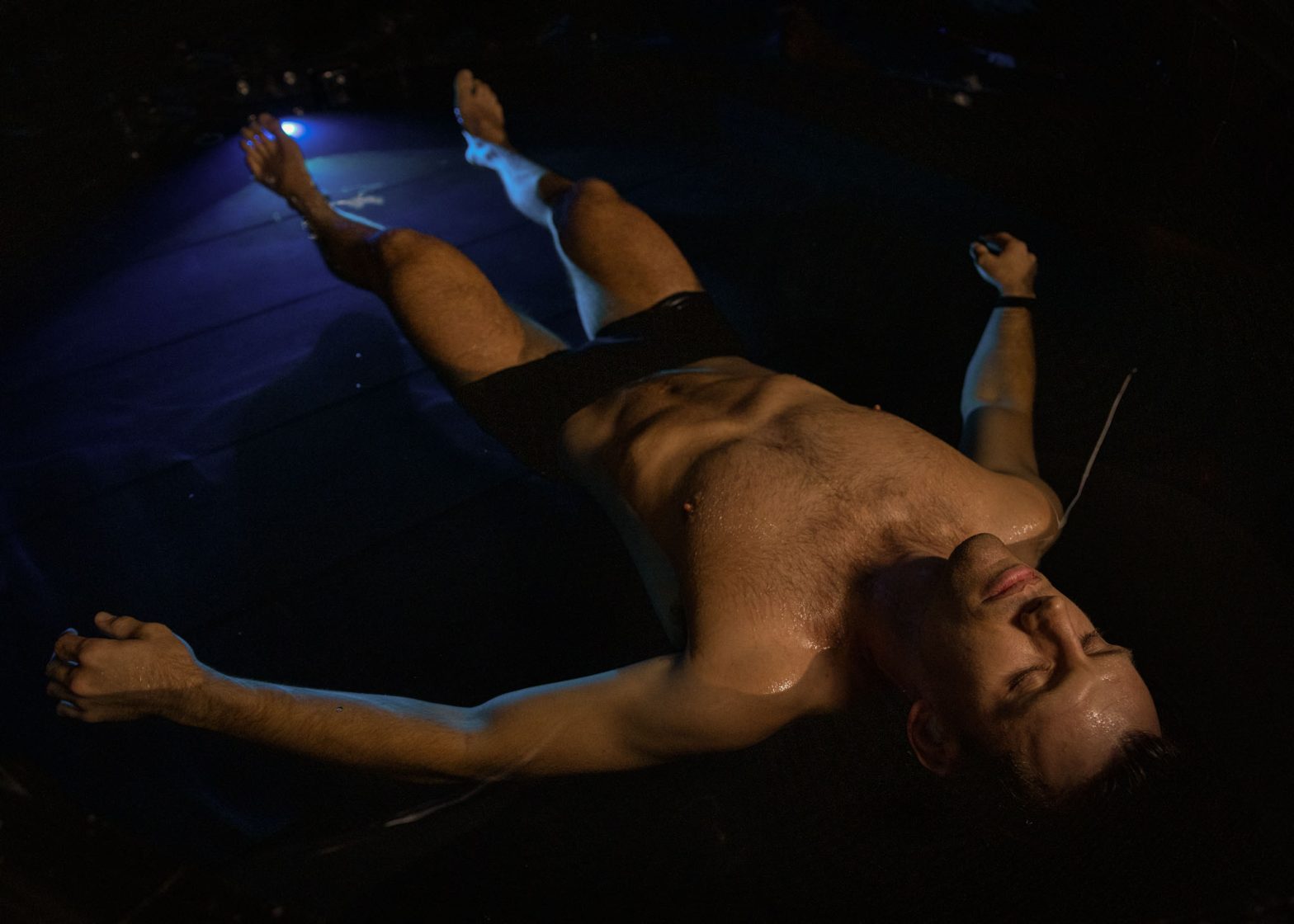However, this state is usually accompanied by vivid imagery and enhanced creativity, so it’s actually quite different from sleeping. If you find yourself dozing off in a float tank, don’t worry – it’s perfectly normal. Just enjoy the ride and let your mind wander.
IS IT SAFE TO FALL ASLEEP IN A FLOAT TANK?
Yes, it is 100% safe to fall asleep in a float tank because you are in complete control of your environment. The float tank is filled with water that is only a few inches deep, so you can easily get in and out if you need to. There are also no sharp objects or anything else inside the float tank that could hurt you.
If you do fall asleep in a float tank, it is important to note that we have music set to play after the session so you don’t float for too long. However, it’s important to remember that floating for too long can cause dehydration, so it is important to drink plenty of water before and after your float session. Eating a light meal before you float is also a good idea, so you don’t get too hungry while in the tank. If you worry that you may fall asleep whilst using a flotation tank or a sensory deprivation tank, you just have to remember that the environment is safe enough for you.
The Theta brain state is the entryway to heightened awareness of the present moment, creative flow, general problem-solving, and even personal breakthroughs for many people who meditate, create, or seek altered states of consciousness. The Theta state is the in-between of conscious and unconscious—it’s what we cross over when become aware. Brainwave entrainment technology, which uses auditory or visual stimulation to guide brainwaves, has risen in popularity as people seek out specific states of mind. One method is floatation tank therapy, also called sensory deprivation tanks or isolation tanks.
Although it may seem like a scary thought that you could fall asleep and sink to the bottom, don’t worry – this is impossible. The tank only contains around a foot of water, and your body’s weight and buoyancy in the Epsom salt solution make flipping over nearly impossible. Most tanks also come with an emergency button that, when pressed, will open the door and turn on the lights. Even if you don’t have a profound experience in the tank or just drift off to sleep, floatation therapy allows for a chance to relax and rejuvenate both your body and mind simultaneously.
The restricted environmental stimulation therapy that you get inside floatation tanks can serve as a preventive health care intervention. Flotation tanks help enhance brain wave activity and also help in terms of chronic pain, blood pressure, sleep deprivation, muscle tension, and others through sensory isolation. The floating effect will help you fully relax and enjoy the buoyancy effect while knowing that you are completely safe.
DO FLOAT TANKS MAKE YOU TIRED?
No, the effect that a float tank has on your body is the opposite of tiredness. The float tank environment is one where you can achieve deep relaxation and rest. When your body is free from the effects of gravity, it’s easier to reach a state of complete relaxation. This can lead to improved sleep when you’re not in the float tank.
Float tanks are also known to reduce stress and anxiety, which can help you sleep better at night. If you’re struggling with insomnia, float therapy may be a good option for you.
There are many benefits to floating in salt water, due to the buoyancy and the high concentration of magnesium. The buoyancy allows all the muscles in your body to relax into their natural state, relieving tension and muscle tightness. This is an experience that is hard to recreate on Earth, as it is the closest your muscles will experience to zero gravity.
Meanwhile, your skin is absorbing the magnesium, which is essential for over 300 chemical reactions in the body. These reactions include dissipating lactic acid, regulating your heartbeat, and keeping your bones, hair, and nails strong. Consequently, floating in salt water provides many benefits for both the body and mind. Because of floatation therapy’s relaxing and rejuvenating effects, it doesn’t come as a surprise that some people fall asleep in the float tank.
WILL FLOAT THERAPY HELP WITH SLEEP DIFFICULTIES?
Yes, float therapy can help individuals with sleeping difficulties. Float tanks provide a unique environment that can encourage deep relaxation and better sleep. Float tanks are also known to reduce stress and anxiety, which can further improve sleep quality. If you’re struggling to get a good night’s rest, float therapy may be worth considering.
Float tanks are filled with water that is saturated with Epsom salt. This creates a buoyant environment that allows individuals to float effortlessly. The lack of gravity and external stimuli can encourage deep relaxation, which can be beneficial for sleep. Float tanks are also typically kept at a comfortable temperature, which can further promote relaxation and improve sleep quality.
FINAL THOUGHTS
Falling asleep in a float tank is possible, and it is not dangerous at all. The reason why people tend to doze off is that float tanks are very relaxing, and the environment makes it hard for people to fight off drowsiness. When people enter the theta state, which is a state of very deep relaxation, it becomes even easier to fall asleep. While float tanks are not specifically designed for sleep, they are practically safe for those who accidentally doze off.
If you want to maximise the benefits of float tanks, you can book in here to TH7 BodyLabs.




